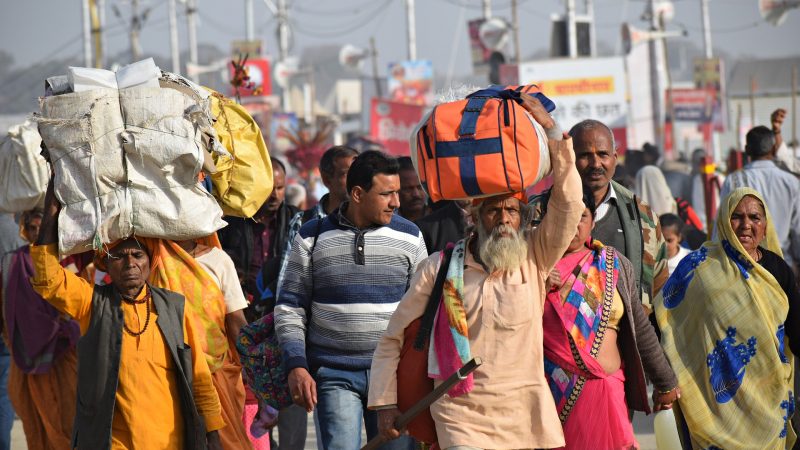Mass Exodus of Migrant Labourers in COVID-19 India

by Rishab Aggarwal
In the backdrop of increasing COVID-19 cases, the nationwide lockdown has been extended until May 31 in India. The brunt is faced by migrant labour force of the country, more than half of which constitutes of daily wage earners, contract workers and casual labourers. With no avenue of regular income left in the states of their location, they have come out on roads to reach their states of origin leading to mass exodus flouting social distancing measures which leaves them vulnerable to pandemic. This has led to grave human rights concerns and violations breaching the international obligations.
The Quarantine Policy prepared through Disaster Management Act, 2005 and Epidemic Act, 1897 read with Ministry of Home Affairs indicate that labour movement outside of the state in which they are located is prohibited. Since the crisis was going out of control, special trains for them was announced. But many could not avail the benefit and still continued their journey through roads. Painful images of them getting killed in road accidents and getting disinfected in flocks like commodities surfaced. They have been forcibly detained at shelters where there are alleged acts of beating and harassment taking place. Also, the financial support and food security measures were found to be insufficient.
A state has obligation to provide optimum security to a migrant worker under international law but here its own citizens are at question. As per the International Covenant of the Economic, Social and Cultural Rights, (ICESR) it is the duty of each state to provide food, clothing along with attainable standard of physical and mental health to each individual. State is also duty bound to eradicate hunger and malnutrition. Such social goods have been deemed necessary for life by the Supreme Court, and right to food is taken within fold of right to life under Article 21 of Indian Constitution. Article 25 of the Universal Declaration of Human Rights further ensures standard of living adequate for health and well being.
But on ground zero, there appears to be failure on all these counts. More than 100 million lower income individuals fail to get ration cards to get access to food grains, breaching their right to adequate food. 96% of labourers as per one study did not receive rations and 70% had no cooked food. 71% of them have not been eligible to get social security benefits. ECOSOC itself found standard of living ensured for them not optimum. Around 400 million would go further below the poverty line. It leaves these groups, especially children vulnerable to diseases, hunger and trauma.
Aggravating their distress, states like Uttar Pradesh and Madhya Pradesh decided to suspend labour laws, through controversial means like an ordinance without taking President’s approval before. The rigid labour norms apparently made it difficult for the industries to function, but studies have found on account of labour flexibility in the country, change in labour laws hardly brings any succour for the economic situation.
Under section 13 of Inter-State Workmen (Regulation of Employment and Conditions of Service) Act, such interstate migrants were eligible to facilities like same wage rates and holidays as other domiciled labourers get. Other welfare legislations like Minimum Wages Act would no longer be in force. This clearly violates the right of a minimum remuneration as under Article 7 of the ICESR. Indian Constitution also guarantees right to adequate means of livelihood.
But the incumbent circumstances expose these workers to the risk of manifest exploitation. For a country that has been a founding member of the International Labour Organisation, it is unfortunate that the basic duty to respect, protect and fulfil the human rights has been overtaken by suspension of core labour standards.
Presently, the government seems to be following a piece meal approach rather than targeting the specific protection of human rights of these labourers. The government needs to protect their dignity without compromising on the response towards COVID-19.
Rishab Aggarwal, Law LLB Undergraduate at Gujarat National Law University.
